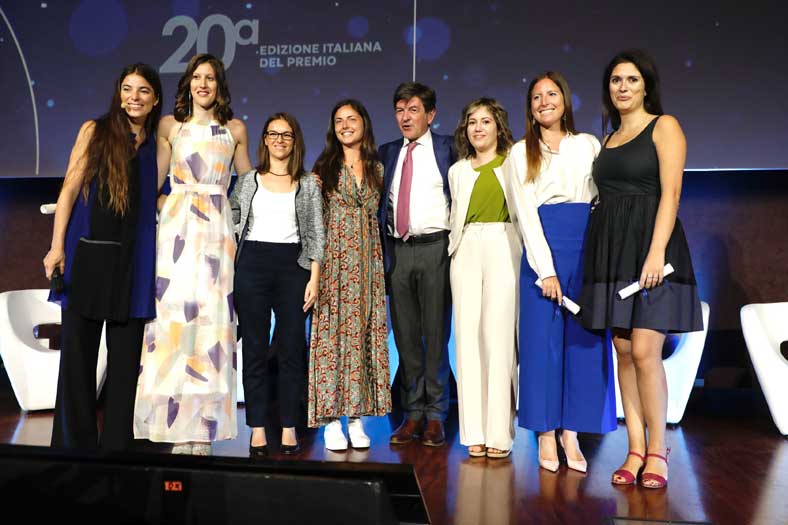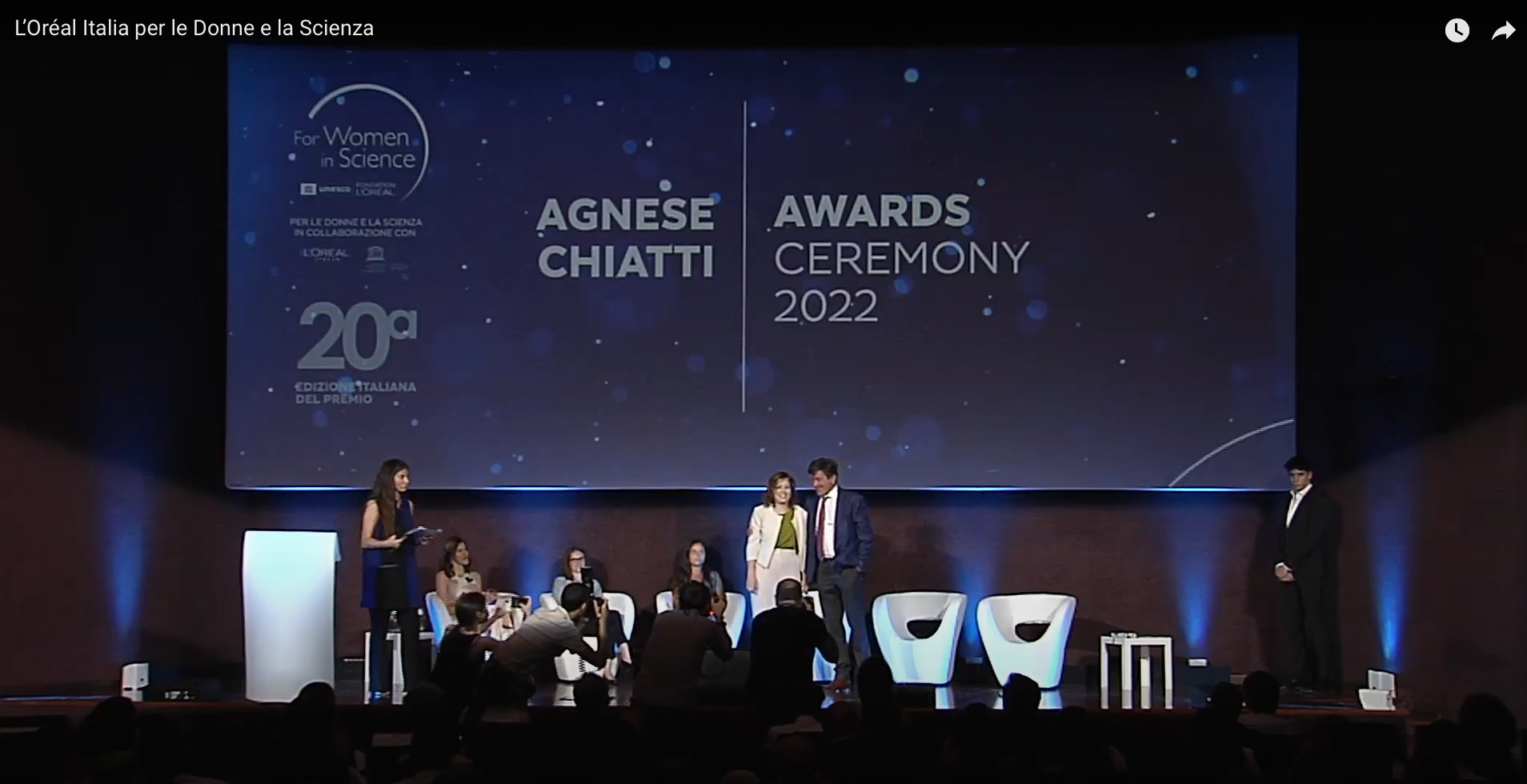News Story
KMi’s Agnese Chiatti wins prestigious L’Oréal-UNESCO Award for Women in Science
Monday 13 Jun 2022
At a ceremony held this morning in Milan, Agnese Chiatti has received the “L’Oréal-UNESCO For Women in Science” prize, in recognition of the excellence of her research in Robotics.
This award, which was established in October 2002 by L’Oréal Italia, in collaboration with the Italian National Commission for UNESCO, provides six scholarships of €20,000 each to female researchers under the age of 35, who have completed or are currently pursuing a PhD in the following scientific-disciplinary areas: Life Sciences; Environmental Sciences; Mathematics; Computer and Information Science; Physics; Chemistry; Engineering and Technologies. This year, over 240 applications were received, from which 6 winners were selected.
Agnese is currently completing her PhD in KMi, under the supervision of Prof Enrico Motta and Dr Enrico Daga, working on improving the ability of robots to make sense of the environment in which they are deployed. In particular, she has developed a prototype of an innovative Health and Safety Robot Inspector (HanS), which is able to patrol the Knowledge Media Institute (KMi) to try and identify possible violations to Health and Safety rules – e.g., flammable items being too close to electrical appliances. In order to do so, HanS uses an innovative architecture for visual intelligence, which combines the latest approaches to object recognition based on neural networks with other modules inspired by human cognition, which aim to equip HanS with the kind of commonsense reasoning that human beings routinely use to interpret the world around them.
The L’Oréal-UNESCO Award will allow Agnese to explore new avenues for her research in Robotics at the Robotics Lab of the Politecnico di Milano in Italy, a group that has collaborated with KMi for a number of years. During her stay in Italy, Agnese will investigate applications of her research in the agricultural sector, in particular exploring ways to improve a robot’s ability to inspect crops, e.g., for an early detection of crop diseases
Related Links:


Latest News
OU Vice-Chancellor visits KMi: A showcase of Innovation and Impact
Explainable AI study on Education Equity awarded Best Paper at ICAITE 2025
ClimateSense team wins top places in two international misinformation challenges
Assessing the Impact of Artificial Intelligence on the Gender Pay Gap
PhD Awarded for Groundbreaking Research on Game-Based Cyber Security Training

